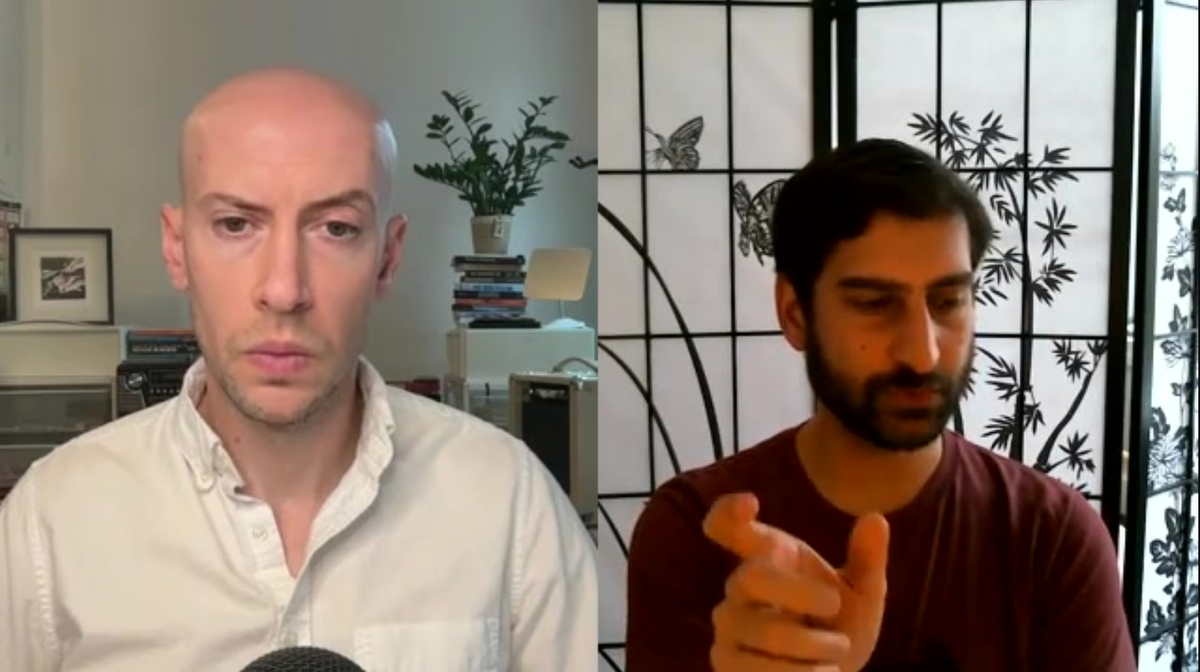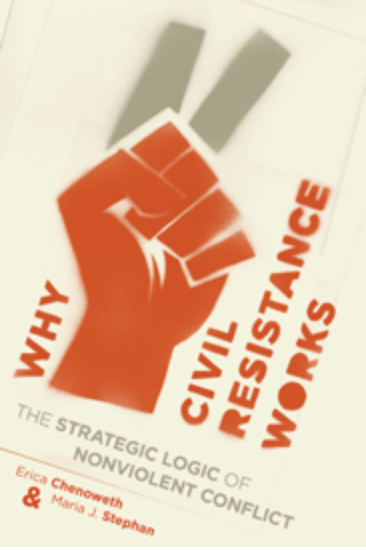Neal Desai Tries To Save the Federal Workforce: Part 2

Neal Desai is currently the head of HR for the State of Maryland, a job he has taken after being at the federal Office of Personnel Management. Neal has a unique front-row seat to the importance, challenges, and modern-day assaults on government workers, and our conversation is a great way to understand what's really at stake.
In this second half, we talk about the long-term impacts of the current cuts (whether they succeed or not), the forces that have shaped the current federal hiring process, and how we can actually improve our government's workforce.
Below is the unedited (and AI-generated, so lightly buggy) transcript. Enjoy!
Part 2
Alex Loewi (34:36.718)
Let's, one, not put our heads into our hands before the interview is over, which tempts me to do, but also just following the arc of time. So you were with OPM, you left OPM, and you are now in a very exciting new position, and an importantly different one. You have left the federal government and you have gone to the state government. Now,
Neal (34:42.012)
Hahaha
Alex Loewi (35:04.598)
Same thing. I'm very curious about what you're doing there. And I'm also curious about what that's what's different about the state and sort of the biggest level question is how much hope do we have from the states? Like, is this just is the government in their hands now? What what's important about the states when this access being taken to the federal government?
Neal (35:26.984)
I mean, I think states are, are and have always been critical to, you know, to the delivery of services and policymaking in our lives. I think, yeah, I mean, the federal government does a lot of stuff that is phenomenal. They have a lot of fiscal headroom. They spend a lot of money every year. They put a lot of money out into the world.
that is not replaced by the states. And I think states are thinking through how to step in and how to try to balance what is happening at the federal level. The federal government is obviously realigning what it does very substantially. That gives a moment of like, okay, well, the old arrangements are no longer working. Let's figure out how we change. But I mean, I don't see the...
The states have always been important. They've always been there. I think they're gaining in prominence at the moment because the federal government is pulling back from so many of the things they've historically done. But I don't think that just highlights the role of the states. I don't think it has fundamentally changed the role of the states in relations. So there will be things where they pick stuff up, where they reposition and the like off the basis. states have always been a place that you, it's one of the classic.
story of the laboratories of democracy, States will try things, they will innovate, they will figure out different ways of adjusting to and compensating for and reacting to the change of the federal government. Those will be really interesting and I'm very curious to see what sort of emerges out of that. But I don't know that the sort of foundational role of the states has always been.
has always done that in lots of different places. mean, you take marijuana legalization as like a fantastic, prominent, recent example where, you know, that all has been occurring at the state level and has really changed a lot of the reality on the ground for people, even as the federal government has not changed policy.
Alex Loewi (37:47.822)
is the kind of work that you're doing with Maryland fundamentally different from the kind of work that you were doing at OPM? You yourself are in a larger position in that role, obviously.
Neal (37:57.648)
Yeah. Yeah, I mean, my role in it has changed a bit, but fundamentally it is not different work. It is all kind of how do we make the human capital system of a public institution work as well as it possibly can for the delivery of the mission of the government entity that we're working for. So yeah, has, I think, very much stayed the same.
Alex Loewi (38:28.62)
I want to move then from, there's more that you want to say about what you're doing now, because it seems super interesting.
Neal (38:34.916)
I mean, I'm really loving it. It's really great. it's, I mean, think there's lots of exciting stuff. It's a lot of the same sort of, you know, the human capital system in a public sector entity is like, there are broad, lots of broad similarities. There are also lots of interesting differences and nuances and flexibilities and needs of the system that are different. And so, yeah.
Alex Loewi (38:37.442)
Cool, let's go.
Neal (39:04.188)
very
sort of same sport, different team kind of thing.
Alex Loewi (39:12.29)
Well, everybody should go work for the state of Maryland. That's one message I want to come across. Excellent.
Neal (39:14.245)
I agree wholeheartedly.
We are hiring.
Alex Loewi (39:20.686)
The... But where I want to go, I feel we've caught up to the future and the future is great, but I, and I think a lot of other people, are looking very hard to the future. Like where... Where do we go from here? Can we go back? What does back mean? If we can't, obviously we can't in some ways. What does forwards look like? And one of the... Let me go in terms of...
not not past a future but now sort of pessimistic to optimistic. First of all, like, how?
How long-lasting are these sorts of changes? Because there's a naive view that might say, well, you know, if the Democrats are in power in another two or four years, well, they just hire them all back. They just pick USAID out of the garbage and they stick it back where it was before, like...
Alex Loewi (40:19.276)
That seems... to me, but I feel like the damage is probably even deeper and longer lasting in a way that you can see better than I can.
Neal (40:31.366)
Yeah, I mean...
So there's a.
I would say I think there's a couple of different levels to think about it on. One is the strict sort of policy, you know, they are rolling out schedule F, which is now the policy slash career, schedule policy slash career, I think. But for simplicity's sake, we'll call it schedule F, because it's the same thing, just renamed. The same idea and just renamed.
rolling on schedule F, I would venture to guess that if a Democrat came into power in four years, they would revoke, they would undo that set of that regulatory framework and bring everybody back and that kind of a thing. the same thing with the, if the public sector unions executive order is able to stand, okay, great. Like that will probably be, that executive order will almost certainly be.
I would imagine would be reversed upon a new, on a new democratic administration. mean, so there's like, the one level is like, the very basic like sort of policy side of this. There's a second, which is the thing you were alluding to, which is like, they're losing a lot of people.
Neal (41:55.528)
from the federal government by directly terminating them, by having them voluntarily resign, by an accelerated pace of retirement or voluntary separations of various kinds. The hiring freeze means that you won't bring new people in to replace those individuals.
Neal (42:16.422)
And then there's sort of a third bucket, which is.
What do you do about the people who, like how are the people at stay and the interactions that they have? What does that look like for them and how do the existing sort of residual organizations continue and how able they continue to function? I think the policy side, like very, I mean, it's a sort of, you those policies will very likely be updated in a subsequent democratic administration, et cetera. There's a...
Alex Loewi (42:35.573)
yeah.
Neal (42:52.902)
the people that leave.
It's very hard to get that kind of talent back, right? mean, it's a, you know, it is, again, it is sort of trite to say, but it is much easier to destroy than to build. You don't get people back just, you you can't just rehire them and everything goes back to the way it was. People move on with their lives. They're in new positions. They're in new jobs. They feel very...
Alex Loewi (43:19.842)
They have new jobs.
Neal (43:25.0)
burned by the whole experience and don't want to come back and work for that employer again. So it's very hard to bring that kind of talent back into the space. And rehiring isn't always a simple solution. You are trying to hire a... I'll use the IRS again just because we've been sort of talking about it, but...
You hire an accountant into the IRS. They're like, you know, the people who audit Coca-Cola or Amazon, right? Like these are extraordinary complex, extraordinarily complex, international, not everybody can audit these people. Like that is a highly specialized set of skills. Not many people have them. Certainly not the people who have those skills are often making a heck of a lot more.
on the other side of the house than they would be at the IRS, you lose a bunch of those people who have that skill set. You can't just bring them, you can't just bring them. It takes years to retrain that kind of a thing. And particularly if there aren't people, if they've lost a lot of talent, it becomes harder to train because there are fewer people to do the training. And so these things become very long-term losses of capability.
Alex Loewi (44:25.208)
Yeah.
Alex Loewi (44:45.262)
Neal (44:53.02)
for the government. But there's also an interesting element of like, what do you do with the existing, once the existing staff are there? And what's likely to happen is that, and what we're seeing with the probationary employees is that many of them are being reinstated because the procedures that the government followed, yeah, there are lesser protections on probationary employees, but you still have to have a reason to do it. You can't just be like, I'm firing you for no...
Alex Loewi (45:02.264)
Mm-hmm.
Neal (45:22.13)
for absolutely no cause. You have less rights, you don't have no rights. And so a lot of people are being brought back on. Well, of course, now they're being brought back on. A lot of times they're being brought back on and then immediately put on administrative leave. Well, administrative leave isn't supposed to be used that way. So what happens if that gets challenged? Like, do they bring people, like some people are fired and then immediately reinstated even without a court order because they're like, wow, turns out we shouldn't fire the people that do nuclear safety.
And so there's like all of these elements where it's like, okay, there's just this huge degree of uncertainty about do we, know, some people are brought back on and they come back to work. Some people come back on or put an admin leave. Some people don't, come back. There's this like massive welter of conflicting statuses and who's working on what. I mean, obviously you try to think about like running a team in that environment. And it's like, like how, you know,
Alex Loewi (46:19.143)
Sure, yep.
Neal (46:21.446)
Maybe my people are getting fired tomorrow. Maybe they were fired, but maybe they're back. Maybe they're not back. I mean, how do you begin to, and it's not like you were involved in any of these decisions. It's just one day you get a notice saying, these people are gone, right? So it's like very hard to run an organization with all of this going on. And so you take that and then you have them not be able to hire or what may happen.
What happens if a bunch of people are hired for explicitly political reasons? So, hey, what if they hire...
tens of thousands of people, hundreds of thousands of people as political appointees.
or as these new schedule F people, right? And that becomes the primary way in which they bring people on. Well, you now have a lot of functions that are being done by people who are hired with an explicitly partisan set of tests, right? Now you have a new democratic administration that comes in. I'm sure lots of the people who would be hired would be doing it for the right reasons and happen to be passed whatever threshold test that you have.
Alex Loewi (47:27.598)
Yeah.
Neal (47:41.852)
and some would not. And more than that, you have now a precedent of going back to a spoils-based system of hiring people. So what do do in that instance? Like if you're a new incoming administration and there are, say the federal government has been reduced down to whatever, 1.5 million people or even less or wherever it ends up, and you're talking about...
you know, 100 or 200, 300,000 people, like however many they bring in over the course of the four years, like, what do do? You know, what happens to the nonpartisan professional civil service? Do you, like, if they bring them all in as Schedule Cs, traditionally all of those people would leave, you know? So do whatever, 100,000 people just get up and leave?
that, you know, at the transover administration, or do they stay? And if they stay, does the incoming administration try to push them out as political appointees of a prior administration? Or does it say, holy crap, we like, absolutely can't run the things we want to run without these people and they keep them? How do and then do they reciprocate by bringing in the same thing on their side? And now you have a truly spoils based system where both sides are
just swapping out huge numbers of people each time, right? So the like, where that lands is extremely uncertain and very unclear.
like the team structure, the morale, the working operating procedure of all of these agencies is going to be pretty disrupted. And I'm hoping that, it's four years is a long time. Like I'm hoping that we'll kind of get into some sort of more regular order after all of this stuff shakes out in a few years and people begin to build the kind of teams and the governments will like.
Neal (49:49.224)
begin to cohere again and people will be able to move forward and do stuff, but who knows? So I think there's a lot of those kinds of disruptions take, they're in a million places across the federal government. They're all at the local team level. How do you hold that team doing this particular thing? And you're doing that across a million plus people.
doing everything from nuclear safety to auditing tax returns to maintaining public parks to everything in between. So there's a how you begin to sort that out and make things function again and resolve all of these things in a sensible way. That's a generational project.
because it's individual local managers understanding their teams, beginning to put things to rights in their little small corner of the world, and doing that, replicating that many, many, many, many, many, many, many, many, many, many times. Which means that you need, all the managers need to do that. And you need to have like the amount of stuff you need in order to build that. It's just so vast when you're thinking about an institution the size of the federal government.
Alex Loewi (51:18.21)
Yeah. Well, I think we did the pessimism part pretty well. No, I hadn't thought of most of that, but.
Neal (51:22.384)
Yeah.
Alex Loewi (51:32.142)
Thank you for laying it out. Since I feel like somebody, everybody needs to hear as difficult as this is what the answer is. I, in part because I don't want to think about the pessimism all the time, but also because, you the future is coming, whether we want it to or not. And I'm trying as much as possible to think about where we want to be going so that we can actually start pointing in that direction as much as possible. I don't want to lay the whole burden on you right now, but you know, what...
In terms of federal or even more generally government workforce in the kind of position that you are, if you were HR czar for the country, where would you want to go? What's a really positive vision that we could strive for even if it's not clear what the path there is yet?
Neal (52:18.374)
Yeah, I mean, this is the thing I thought a lot about and unfortunately, I think I... So the optimistic case is that we know, I mean, anybody who's been in the federal government, I mean, who's been or worked closely with it will say that our human capital system is without flaws, to put it mildly. Like, clearly there's lots of stuff that doesn't work as well as we would like it to.
Alex Loewi (52:40.468)
Mm. Yeah.
Neal (52:49.628)
There is, I think, a general consensus amongst people who sort of are particularly focused on this area of government policy that significant changes are needed, that the foundations of the system aren't serving us in all the right ways, and that reform is needed.
Neal (53:17.955)
The optimistic case is that the federal government and the federal workforce are in such sort of dire straits at the end of the four years, or there's been so much change that there's no going, that there's a general understanding that you can't just return to the status quo ante. You're gonna have to make some of the foundational changes in order to respond to.
where the workforce currently is. And so that gives you a sort of political opening to propose bold shifts in the way things are done.
What those shifts are, I mean, I have a lot of, again, I put thought to this. I'm actually, it is a moment where I'm sort of, I put a lot of thought to this. A lot of that thought is in the context of the existing system. Knowing what will be needed in a few years is going to, like, I actually think there will be meaningful differences for.
for what the right answer will be based on where the system is in a few years. I think broadly, I mean, like think broad themes, deproceduralization and thinking about how do we structure checks and balances and incentives versus procedural checks is a really substantial one. So federal hiring attempts to
Alex Loewi (54:34.498)
Yep, I that makes sense.
Neal (54:58.866)
control to prevent nepotism, political hiring, other negative type of behaviors by establishing extremely strict standards and having very strict sort of procedural checks of exactly what you do and what order with what set of things. And it imposes a lot of controls that way. And it's built...
And you can kind of see exactly how it's the sort of, as you get into the weeds of it, you see there's like a very, it was built in the fifties off of ideas from before then that were based around a sort of an industrial workforce, right? Where much more of it was clerical work, filing, industrial type activities where,
Alex Loewi (55:34.442)
Mm-hmm. Yeah.
Neal (55:54.728)
Whereas today we are in a knowledge economy and you can very much see how the sort of the sets of procedures that you have are very well tailored and actually still work decently well for an industrial economy and don't work very well for a knowledge economy. And I'll give like one example of this, which is you have a, you're hiring, sort of,
Alex Loewi (56:14.561)
Interesting.
Neal (56:23.432)
traditional civil service hiring, would have people, you you would post a job, people would apply for that job. There would be a standard classification of the minimum quals that you needed, the minimum qualifications that you needed for a role. You need a bachelor's degree or you need a year of experience or you need whatever, right? And HR takes a look at the resume says, okay, these people meet the minimum qualifications. And then there's a
a rating and ranking procedure that goes on typically, it used to be a, like a more through a test. Now it is done through, generally through in like 80 plus percent of cases, it's done through a set of self-selected questionnaires. So it's like a, it's a self-rating occupational questionnaire. So you like fill out, there's a couple of questions. Do you have experience with this? What level of experience do you have with that? And then that, you just spread people out.
Alex Loewi (57:10.594)
Mm-hmm. All right.
Neal (57:22.856)
And then you apply various preference points. like veterans preference, for example, you get X sort of bumps based on the type of veteran status that you have. And you're sort of shifted into lists based on are you best qualified, better qualified, qualified. If you are a 30 % service disabled veteran, we take you from wherever you are on any of the lists and we put you right at the top. And you have to look through those
those people first and you have to hire them first or you don't, you can't hire anybody else. And so think all of this makes a ton of sense in an industrial economy, right? Like if you are hiring for somebody working a line in an industrial activity, right? Like you are processing paper tax returns from, the IRS to keep our IRS theme going. And what you do is you help feed the machine that
sorts and processes all of the tax returns that you get in, and you take those things out, and you take the checks out of the envelopes that have been mailed, and you put them in the right thing to get them sorted. And you do this for whatever, millions of tax returns every year, right? Like, great, you're running a line, it's a very discrete set of things. Yeah, like this system works. You meet the minimum qualifications, hire the person, you're gonna provide them the training that they need in order to do their particular job.
makes total sense and actually works still decently well. In knowledge economy, you're hiring an IT programmer, a coder who needs to have a couple of skills, a couple of languages and familiarity with a few programs, but more generally is like sort of creative and insightful on how to use the languages that they have and sort of stretch into other areas.
that they're gonna encounter. You're not gonna meet anybody, everybody who knows all the things that you need to know, but you need somebody who's gonna be kind of creative and thoughtful and sort of good at coding.
Neal (59:31.464)
It's very hard to define minimum qualifications that target just that level, right? And so maybe the person doesn't know, doesn't list that they know, I don't know, Ruby on Rails as the thing, but they've worked in four languages that are super adjacent to it. They've worked on Ruby, but not on Ruby on Rails or whatever. I don't know the space at all. So apologies if I'm getting any of this wrong, but like, you know, but...
Alex Loewi (59:36.354)
Yeah.
Alex Loewi (59:56.45)
That's good example. Yeah.
Neal (01:00:01.412)
They don't, they whatever. So it's like, yeah, I mean, I, you know, give me three weeks and I'll know how to code in this other language well enough to do anything you need. I've done a whole bunch of other stuff. I've got a PhD in computer science and whatever. First of all, like if you don't have Ruby on Rails and Ruby on Rails is in the minimum qualifications, you are not qualified for that job. Right? That doesn't make it, that doesn't make sense in this instance, right? Like that person is.
fully qualified for this job, right? Maybe overqualified for this job, but doesn't have this one thing because it's just the thing in that particular min qual and whatever. And then rating and ranking, self-ranking questionnaires are gonna be really poor measures of, you good at this various thing? Do you have the right set of things? And so then you get a list of people and you have to clear the top few.
Alex Loewi (01:00:49.346)
sure.
Neal (01:00:56.818)
First, you have to hire these top few people first before you can see anybody else on the list. So if you have to go through, you as a hiring manager, you can't look at the resumes and say, okay, like this person's actually really exactly what we're looking for. You can't even see that the resume is there, let alone necessarily interview them or hire them.
Alex Loewi (01:01:18.542)
Bye bye.
Neal (01:01:22.33)
in certain instances, like even interviewing a person and saying like, this person isn't actually a fit for what we're looking for would not be a sufficient measure in order to be able to not hire that person. So like this, these set of things, they're extremely procedural checks and they're designed for a, like they're well suited for an economy that we don't predominantly have any.
And so what to do is like, do you, like you both, have to build the system to resist bad actors, right? Like we have a history of political hiring, of nepotistic hiring, like, we are not that far away from it. And this is not a system that you can just set and forget, right? Like these are things that you have to keep maintaining, right? The incentive structure for rewarding your political allies.
with jobs in the government is still there. It's just we've effectively stopped it with these, prevented it with these checks. You remove the checks and the incentive structure still potentially remains. So how do you, you have to build with some degree of resilience and sort of somebody's gonna come and try to hack this system. So how do you build a better, how do you build the system to accommodate the new way we do our economy versus not?
And so deproceduralization is like a big theme in this space. How do we reduce the amount of like, you know, box checking, you know, X, Y, Z step and bring in more discretion into the thing, but also prevent negative behaviors. And so I have thought a lot about like,
Okay, how do you do it with the set of incentives and the set of people involved in a set of decisions so that you can balance the equities and so you can make it more of a checks and balances system where there's less procedural checks and more structural checks on this kind of thing. But again, now I'm rambling about the nuances of these policy things, but broadly these like themes of how do you deproceduralize
Neal (01:03:44.402)
How do you improve the incentive structures? All of that is really kind of core, but we're gonna be in such a different place in four years that I'm curious to see where we, like how this needs to adjust for where the civil service actually is. Sorry, that's an extraordinarily long and rambling answer.
Alex Loewi (01:04:05.922)
Well.
Alex Loewi (01:04:09.356)
No, no, no, I mean, I think all of your answers to my what, you know, sort of seemed like simple questions demonstrate, anything, the spectacular complexity of like every piece of every bit of this itself vast puzzle. So if that's the answer, that's the answer.
Neal (01:04:28.39)
Yeah, I mean, and it gets this element of like, it's very easy to say, I encountered this situation, it was really silly, and we shouldn't do this, right? But it becomes very, like, you can't assume that you will be the one doing it each time, right? Or that all the positions look like the ones that you are looking at.
Alex Loewi (01:04:40.398)
Mm-hmm.
Neal (01:04:57.298)
there is value in a system in some degree of coherence across the various pieces of the puzzle. And there are so many different types of jobs that are being hired for and so many different circumstances. In the government, you have to consider the edge cases and there are a million edge cases in a place this large. So it's just the balancing act becomes
very, very tricky.
Alex Loewi (01:05:30.754)
Well, I'm not sure that was quite as optimistic as I was hoping for you. I do not blame you for this. you pointed out, this is the water we're swimming in right now. But put it this way, in four years, I hope that you have a say in what's happening and even more hopefully I'll talk to you again before then. But for now, thanks enormously for taking this time. All fascinating, all super helpful. And yeah, just appreciate it.
Neal (01:05:57.0)
Well, Alex, it's a pleasure chatting. It's good to see you and yeah, let's talk again soon.
Alex Loewi (01:06:03.822)
The recording has technically stopped, we should hang around.



